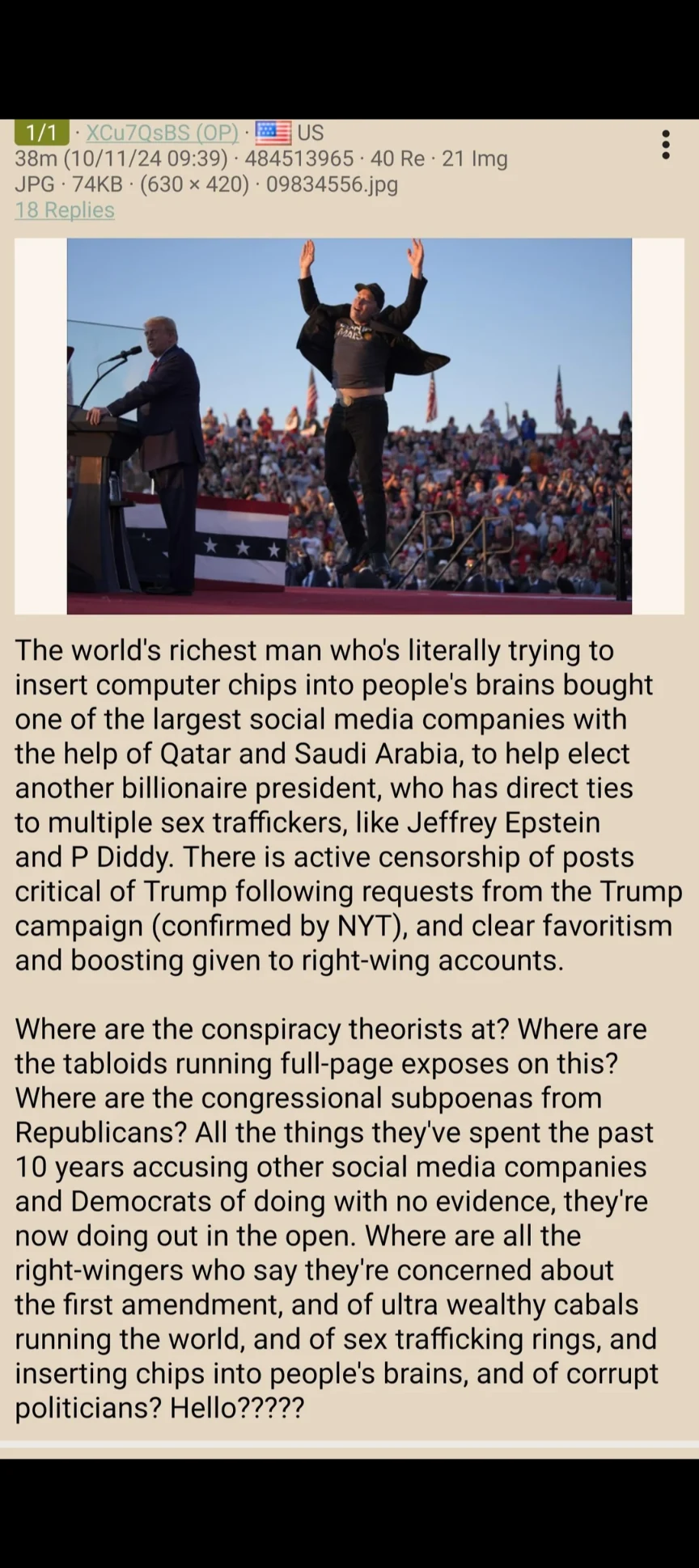this post was submitted on 12 Oct 2024
972 points (98.6% liked)
Greentext
4454 readers
1085 users here now
This is a place to share greentexts and witness the confounding life of Anon. If you're new to the Greentext community, think of it as a sort of zoo with Anon as the main attraction.
Be warned:
- Anon is often crazy.
- Anon is often depressed.
- Anon frequently shares thoughts that are immature, offensive, or incomprehensible.
If you find yourself getting angry (or god forbid, agreeing) with something Anon has said, you might be doing it wrong.
founded 1 year ago
MODERATORS
you are viewing a single comment's thread
view the rest of the comments
view the rest of the comments

If they were any good at it they'd be employed as journalists and win Pullitzer Prizes for their work. Nixon having his goons break into a hotel to steal information from his opposition is a hell of a "conspiracy theory". But we don't consider it that because Woodward and Bernstein put in the work to find the evidence.
Your typical internet conspiracy theorists are just plain lazy and very susceptible to selection bias. They make up things to fill in the gaps of their theories and refuse to change the made up bits even when they find evidence to the contrary. The general contrarianism of the internet pushes people to think the opposite of establish facts.
In the end it's just a mess of made up shit that conforms to the emotions of the person that made it up. These conspiracy theories are promoted among those with similar feelings. They push way more lies than anyone else.
I don't think this exists as a group.
Yes. The big difference between conspiracy theories and (good) journalism. Sometimes these gaps are highlighted as speculation, but often they are not. The more evidence a conspiracy theory has backing it, the closer it gets to journalism.
People like this are super easy to argue against because you can provide the supporting evidence and they shut up.
I don't think it is contrarianism. In previous decades traditional media had a monopoly on one to many communication. Now anyone can broadcast any information, true and false, to a worldwide audience.
Sometimes yes, sometimes no.
Easy to do. For example, you are now expressing a feeling, not stating a fact.